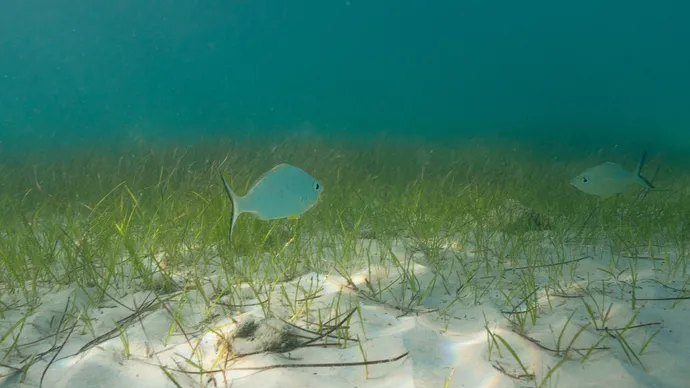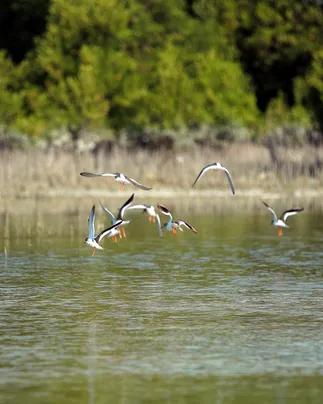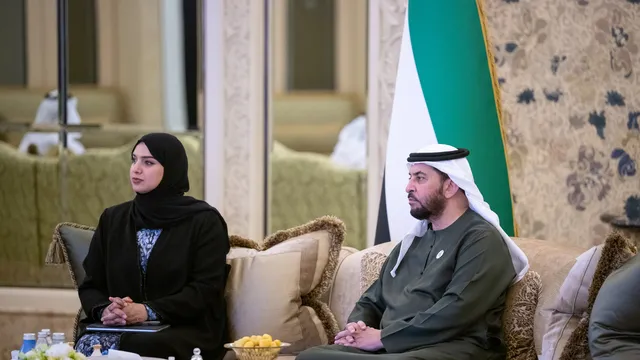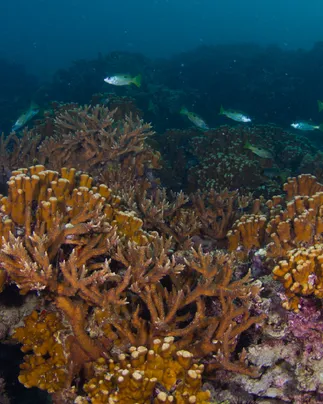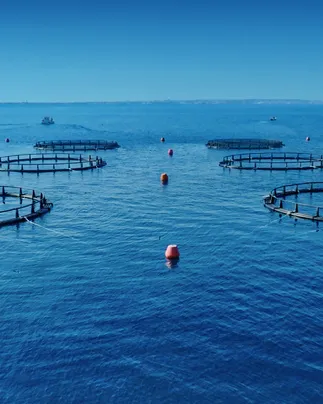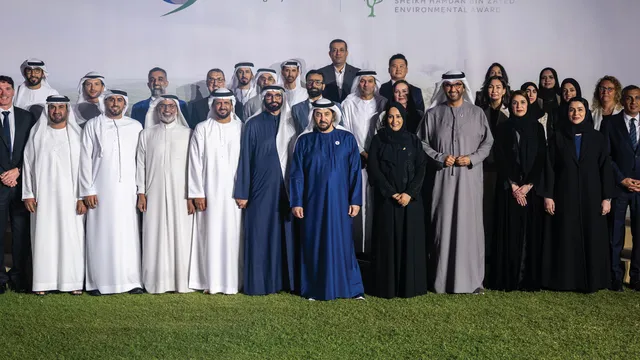As part of the Abu Dhabi Climate Change Strategy, the Environment Agency – Abu Dhabi (EAD), in partnership with TotalEnergies, has launched a groundbreaking seagrass restoration programme, marking a pivotal step in preserving Abu Dhabi’s marine ecosystems and reinforcing its global role in promoting nature-based solutions to address the challenges of climate change.
This year-long project underscores the Environment Agency – Abu Dhabi's commitment to developing best practices for restoring seagrass habitats, contributing to the conservation and development of blue carbon systems. Seagrass meadows are among the most effective coastal ecosystems for absorbing and storing blue carbon in their tissues, roots and soil. In addition to their role in mitigating the effects of climate change, seagrasses play a vital role in enhancing biodiversity. They are important natural habitats for a wide range of marine species, contribute to sustainable fisheries, improve water quality and support ecotourism.
Her Excellency Dr. Shaikha Salem Al Dhaheri, Secretary General of EAD, said: “Our seagrass restoration embodies Abu Dhabi’s commitment to conserving its natural heritage and addressing global environmental challenges. Through innovation, collaboration and science-based action, this project is restoring habitats and strengthening our ability to protect and sustain the emirate’s rich marine resources for future generations. Our collaboration with TotalEnergies is an important step towards strengthening joint efforts and harnessing the potential of the public and private sectors, and combining efforts to achieve the resilience of our coastal ecosystems, ensuring a sustainable future for our planet."
Abu Dhabi is home to three types of seagrass meadows, which cover an area of 3,000 square kilometres, supporting more than 3,500 dugongs and 4,000 green sea turtles, among other marine life. Abu Dhabi is home to the world’s second-largest dugong population after Australia, which feeds exclusively on seagrass. This makes protecting, conserving, and developing seagrass meadows vital for their survival.
The project has successfully planted 10,000 square metres of seaweed, capable of storing 52 tonnes of carbon, equivalent to 23 flights from Abu Dhabi to London, in alignment with the “2030 Seagrass Breakthrough of the UN Ocean Decade of Ocean Science”. It relies on the use of the most widespread seagrass species in the emirate, ‘Halodule uninervis’, and incorporates the latest technology and innovations for post-cropping monitoring and follow-up.
Since 1999, TotalEnergies has partnered with EAD to protect Abu Dhabi’s ecosystems – supporting dugong conservation, protecting flamingo habitats, conducting research on coastal resilience to climate change, and promoting biodiversity research at Al Wathba. Their work promotes initiatives focused on nature-based solutions, improving soil and air quality in mangrove forests, seagrass and salt marshes. A key outcome is the dugong and Seagrass Research Toolkit, now used in over 40 dugong and 80 seagrass range states.
Samir Oumer, President TotalEnergies EP UAE and TotalEnergies Country Chair, said: “Our collaboration with the Environment Agency – Abu Dhabi (EAD) reflects our deep commitment to marine biodiversity and ecosystem restoration. The dugong and seagrass restoration project is a cornerstone of this partnership, aiming to rehabilitate vital coastal habitats and ensure the long-term survival of dugong populations. Through targeted conservation efforts, habitat restoration, and community engagement, we are working to reverse the decline of these critical ecosystems. This initiative not only supports biodiversity but also strengthens the resilience of coastal communities that depend on healthy marine environments.”
The Environment Agency – Abu Dhabi will also host, for the first time in the Middle East, the 16th International Seagrass Biology Workshop (ISBW) and the World Seagrass Congress in 2026.
The announcement was made by the World Seagrass Association (WSA) and the International Union for Conservation of Nature (IUCN) at the end of August 2024. This event will serve as a platform that brings together governments, scientists, researchers, and specialists in coastal and marine environments, highlighting global seagrass issues, enhancing our knowledge about them, while also developing support and protection networks.


